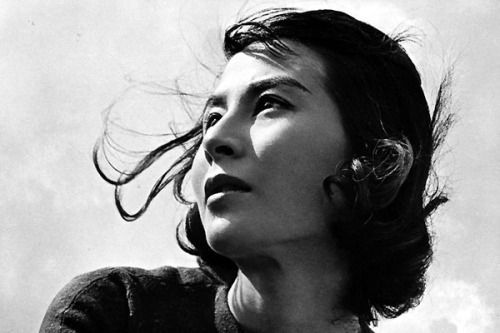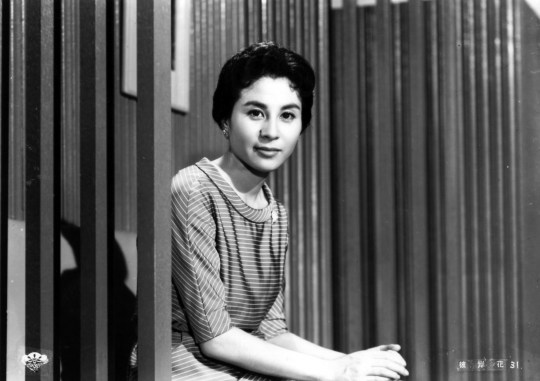#Yoshiko Kuga
Text

Farewell to Dream (Keisuke Kinoshita, 1956)
#Farewell to dream#Keisuke Kinoshita#Kinoshita#1956#Yuyake-gumo#Yuyake gumo#quote#black and white#japan#Yûyake-gumo#Yûyake gumo#Yoshiko Kuga#fun
203 notes
·
View notes
Text


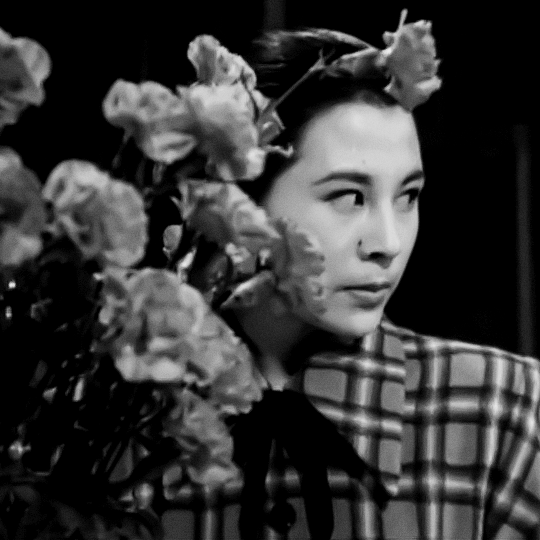
YOSHIKO KUGA as AYAKO (Aglaya Ivanovna) in THE IDIOT / 白痴 (1951) dir. Akira Kurosawa
#the idiot#the idiot 1951#akira kurosawa#yoshiko kuga#白痴#fyodor dostoevsky#filmauteur#cinemaspast#worldcinemaedit#adaptationsdaily#Dostoyevsky#aglaya ivanovna#ellisgifs#from the drafts#need to find a good quality version of this film 😔#queue
243 notes
·
View notes
Text
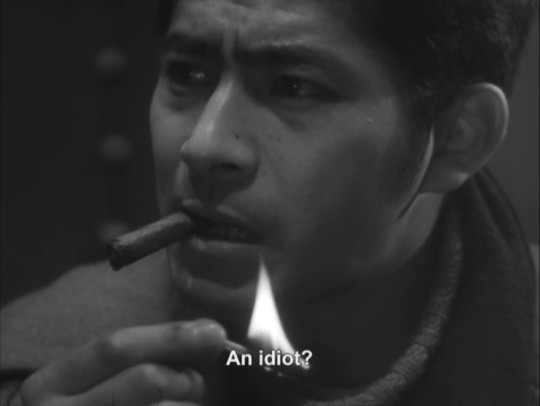
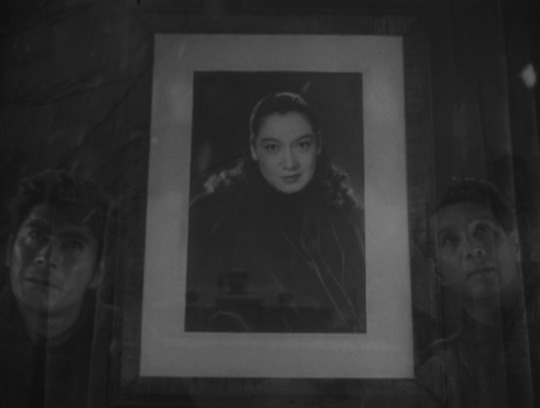

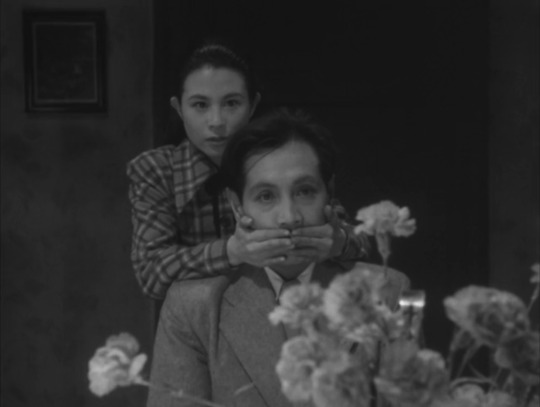

Akira Kurosawa’s “白痴” (The Idiot) May 23, 1951.
#Akira Kurosawa#白痴#The Idiot#The Idiot (1951)#1951#Fifties#Foreign#🇯🇵#📚#Adaptation#Drama#Fyodor Dostoevsky#Fyodor Dostoyevsky#Dostoevsky#Dostoyevsky#Toshiro Mifune#Masayuki Mori#Setsuko Hara#Yoshiko Kuga#Stills
91 notes
·
View notes
Text
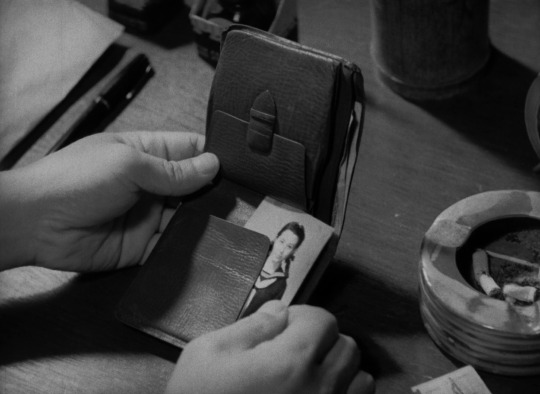
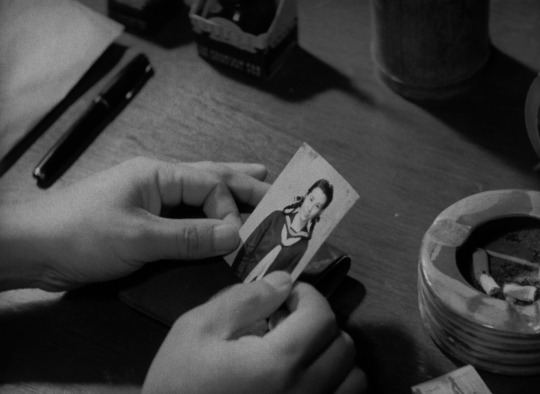
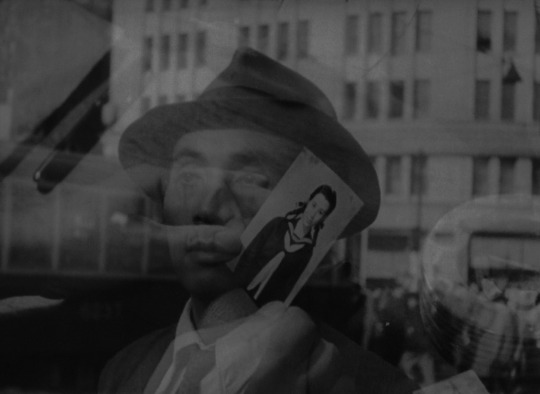
Kinuyo Tanaka
- Love Letter
1954
#Kinuyo Tanaka#Love Letter#Masayuki Mori#田中絹代#恋文#森雅之#japanese film#1954#久我美子#yoshiko kuga#photograph
61 notes
·
View notes
Text















Zero Focus (1961)
#zero focus#yoshitaro nomura#yoshiko kuga#hizuru takachiho#ineko arima#koji nanbara#ko nishimura#talks
28 notes
·
View notes
Photo






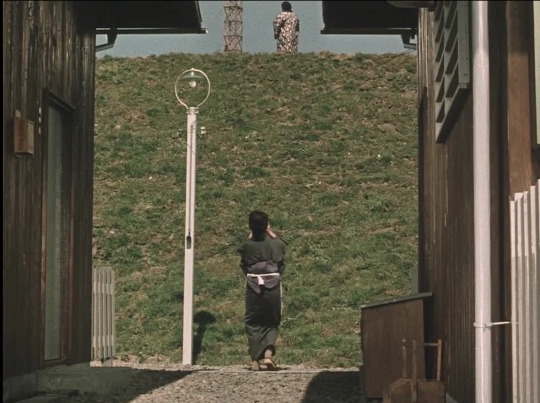


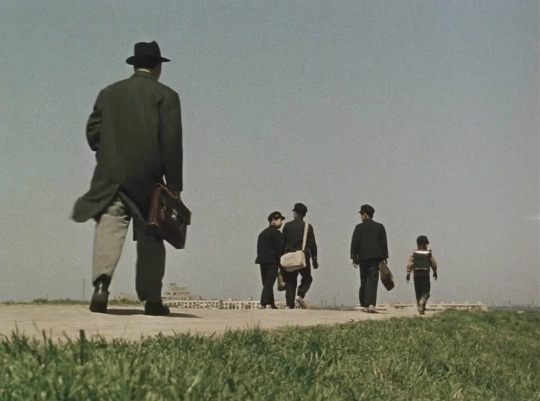
SUBLIME CINEMA #648 - GOOD MORNING
Ozu’s films were characterized by the relentless use of 50mm lenses and what cinematographer Yuharu Atsuta referred to as ‘tatami shots’ - table level static angles of domestic scenes, meticulously composed and coordinated by tone, shape and color. The angle and lack of movement have a flattening effect onto the image; Ozu’s films often look like unsettlingly symmetrical print work.
The narratives puzzle together in similar ways: circuitous tapestries of the private lives of ordinary people, stories that are profoundly observant and gently emotional.
#cinema#film#movie#movies#films#great film#good morning#ozu#Yuharu Atsuta#Yasujiro Ozu#Ohayō#50's film#1950's#japan#Japanese cinema#Keiji Sada#Yoshiko Kuga#tokyo#classic film#world cinema#drama#emotional#emo#emotional film#design#cinematography#cinephile#color film#color#35mm
157 notes
·
View notes
Text
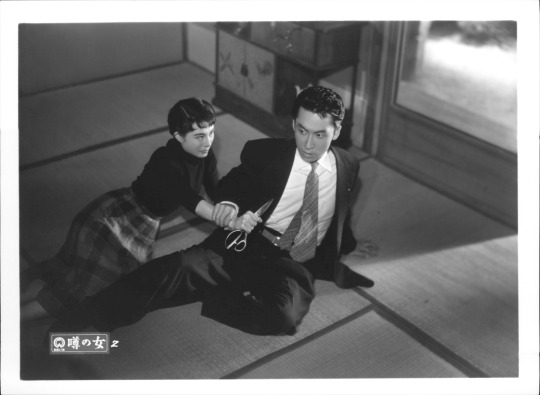
Happy 93rd, Yoshiko Kuga.
With Tomoemon Otani in Kenji Mizoguchi’s The Woman in the Rumor (1954).
10 notes
·
View notes
Text


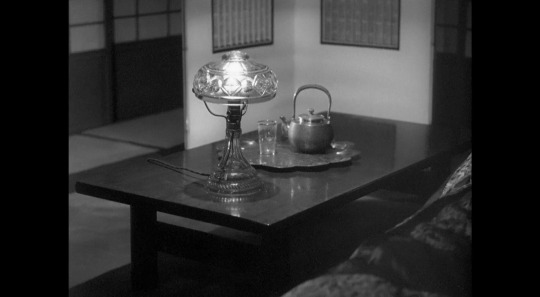


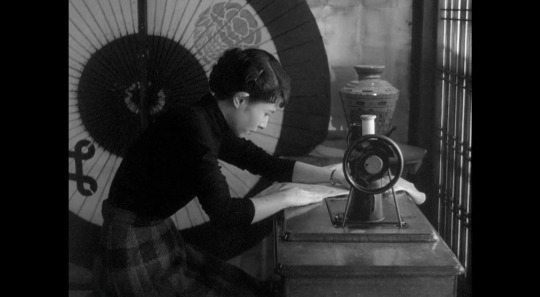


woman of rumour (kenji mizoguchi, 1954)
22 notes
·
View notes
Text

Ineko Arima, Fujiko Yamamoto, and Yoshiko Kuga in Equinox Flower (Yasujiro Ozu, 1958)
Cast: Shin Saburi, Kinuyo Tanaka, Ineko Arima, Yoshiko Kuga, Keiji Sada, Teiji Takahashi, Miyuki Kuwano, Chishu Ryu, Chieko Naniwa, Fujiko Yamamoto. Screenplay: Yasujiro Ozu, Kogo Noda, based on a story by Ton Satomi. Cinematography: Yuharu Atsuta. Art direction: Tatsuo Hamada. Film editing: Yoshiyasu Hamamura. Music: Takanobu Saito.
Equinox Flower is Yasujiro Ozu's first color film. Once again he lagged behind film industry trends -- the first color film in Japan was made in 1951 -- and managed to anger the Japanese film industry by using the German-made Agfa color process instead of Fuji film because he thought the reds in Agfa film were truer. American viewers may be struck by how the movie often seems to be a Japanese translation of the American family comedy: think Father of the Bride (Vincente Minnelli, 1950). It centers on Wataru Hirayama (Shin Saburi), who finds his wife and daughters scheming against him when he insists on arranging the marriage of his elder daughter, Setsuko (Ineko Arima). When a young man he has never met before, Masahiko Taniguchi (Keiji Sada), comes to his office one day to ask for Setsuko's hand, Hirayama is furious, and not only forbids the marriage but also insists that Setsuko, who has met Taniguchi at the place where she works, be confined to home. Eventually, things work out for the young couple, but not before Hirayama has learned a lesson about the way the roles of the sexes have changed in Japan. In fact, when we first see Hirayama, he is giving a speech at a wedding, indicating his preference for parental approval and noting that even though their own marriage had been arranged, he and his wife, Kiyoko (Kinuyo Tanaka), who is sitting silently beside him, made a go of it. We will soon learn that Kiyoko is not quite so submissive as she seems. The bite that underlies this quite charming comedy lies in its portrayal of the post-war Japanese male, the warrior turned salaryman, most effectively seen in an episode in which Hirayama, after reluctantly attending the wedding of Setsuko and Taniguchi, goes to a reunion of his old classmates, who sing songs about the glory of the Japanese warrior though their own lives consist of office work and golf.
0 notes
Text

Farewell to Dream (Keisuke Kinoshita, 1956)
#Farewell to dream#Keisuke Kinoshita#Kinoshita#1956#Yuyake-gumo#Yuyake gumo#quote#black and white#japan#Yûyake-gumo#Yûyake gumo#elderly#melancholy#Yoshiko Kuga
117 notes
·
View notes
Text




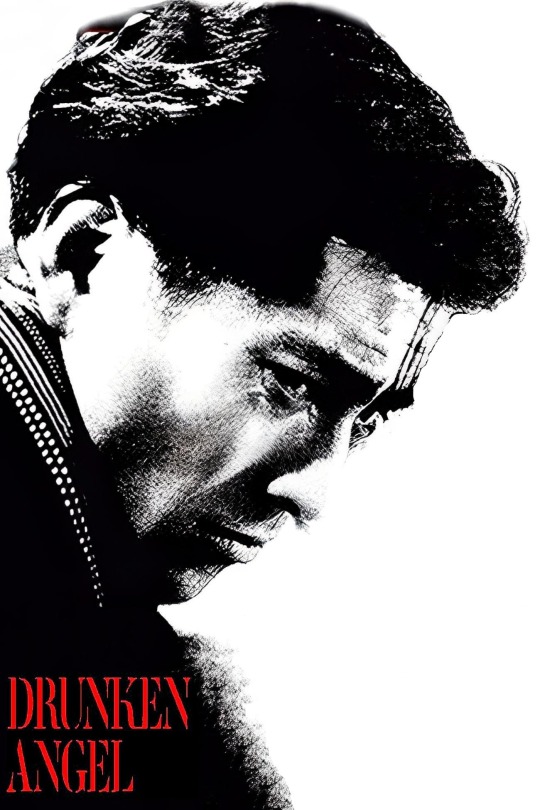


W A T C H I N G
#DRUNKEN ANGEL (1948)#AKIRA KUROSAWA#Watching#yakuza#Japanese film#alcoholism#Post-WWII#post-war film#film noir#Reisaburo Yamamoto#Michiyo Kogure#Chieko Nakakita#Eitarō Shindō#Noriko Sengoku#Shizuko Kasagi#Masao Shimizu#Yoshiko Kuga
0 notes
Text

Yoshitaro Nomura
- Zero Focus
1961
32 notes
·
View notes
Text
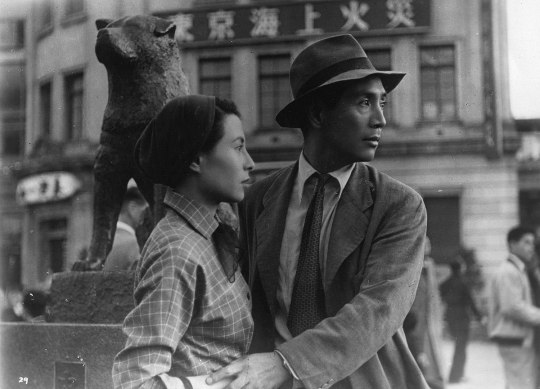
Yoshiko Kuga et Masayuki Mori dans "Lettre d'Amour" de Kinuyo Tanaka (1953), août 2023.
2 notes
·
View notes


